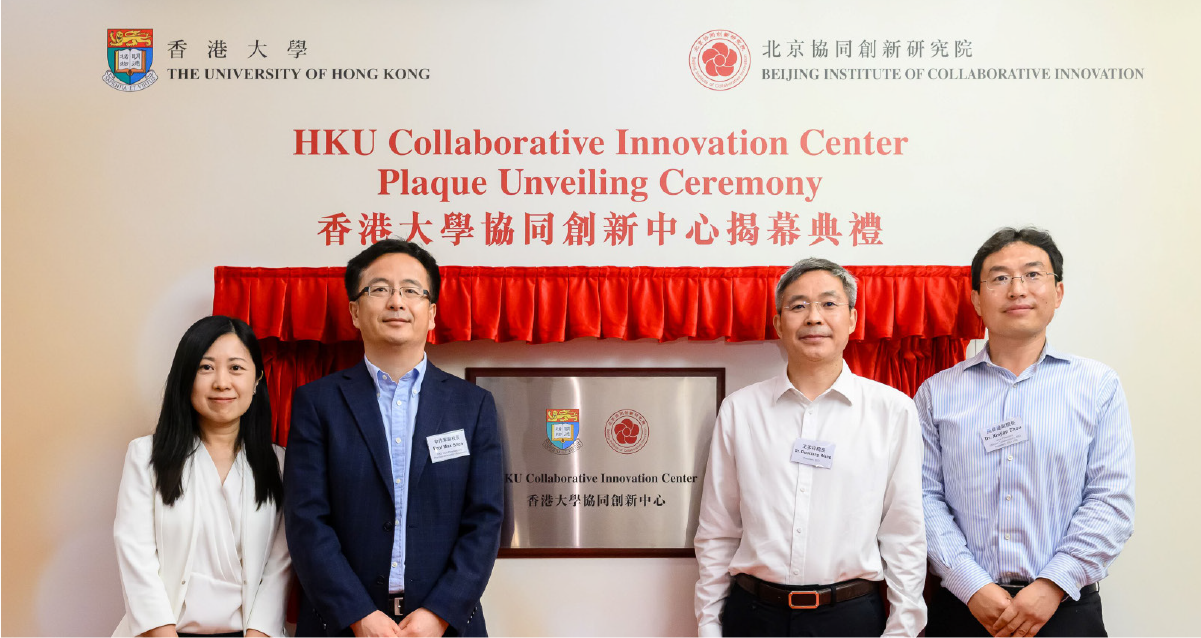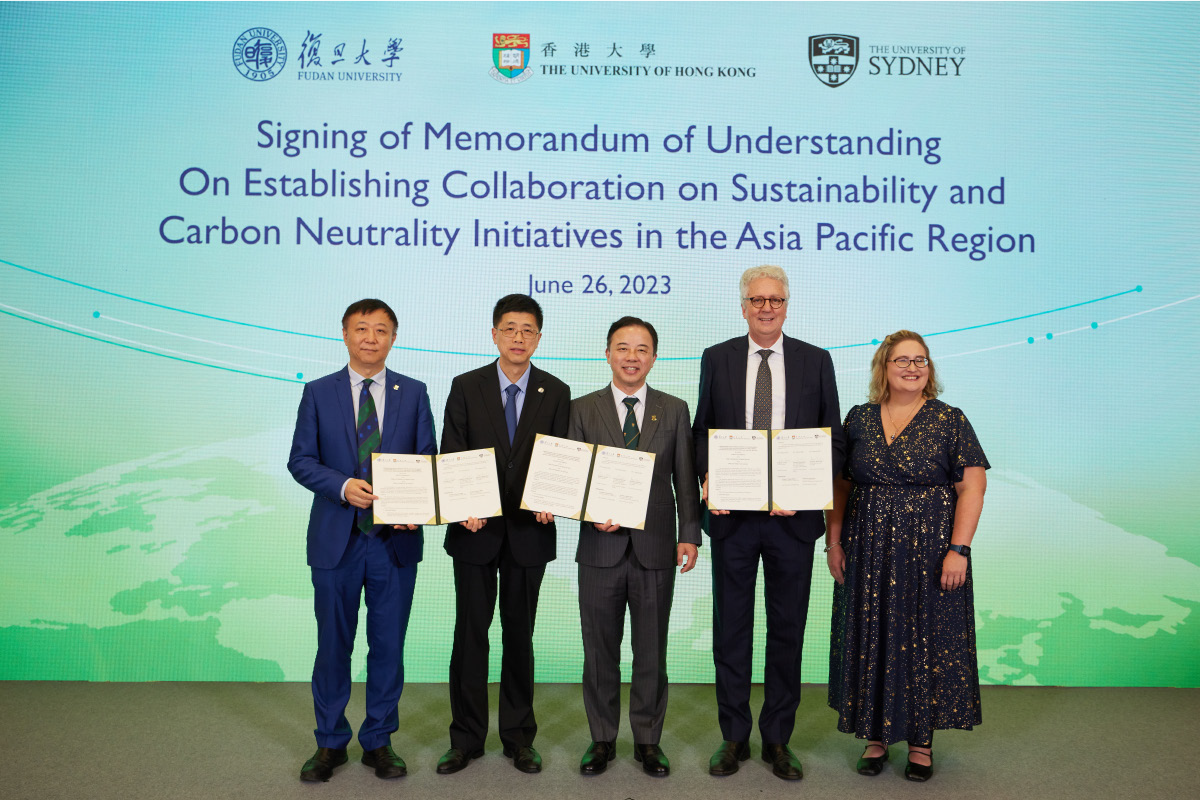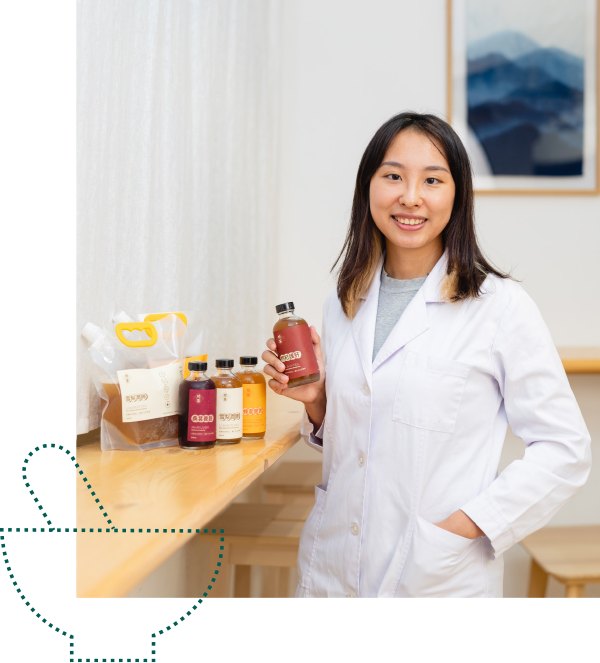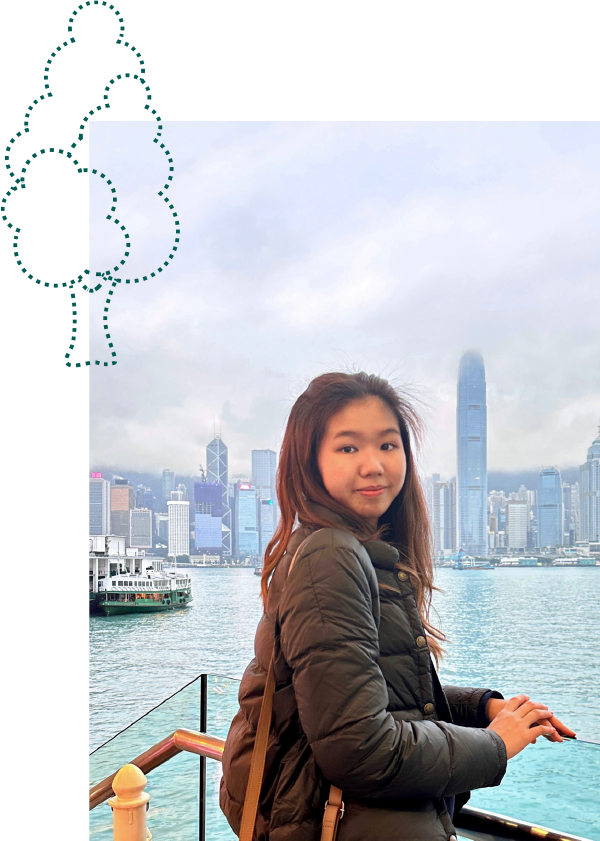THE TEC: INNOVATION HUB
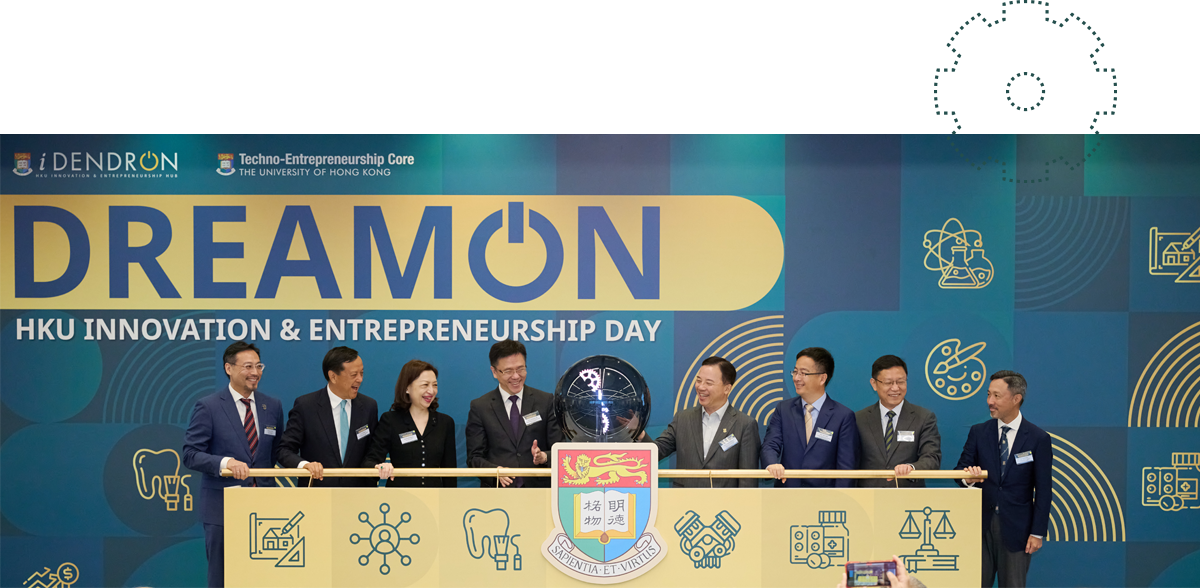
A series of innovation and entrepreneurship initiatives including the official debut of Techno-Entrepreneurship Core were announced at the HKU Innovation and Entrepreneurship Day: DreamOn 2023.
Innovation support at HKU has until recently been scattered across a variety of programmes and centres. To consolidate that support, boost entrepreneurship and promote an innovation culture among both students and staff, the new Techno- Entrepreneurship Core (TEC) was launched at the DreamOn event in June. The Technology Transfer Office, which deals with commercialisation, has also moved to the Main Campus to be closer to researchers and research administrators.
The TEC is a central platform hub that offers pathways to funding and other resources, creates opportunities for researchers, students and alumni to connect with each other and industry, and provides training and other support.
It also encourages the formation of deep-tech start-ups through its management of the new DeepTech 100 incubation programme, which was launched in October 2022 with the Hong Kong Science and Technology Park to provide up to HK$1.39 million in funding and mentorship to 100 young start-ups within three years. The TEC also manages the iDendron and new Start-up Connector programmes that are pitched at students and alumni, and runs programmes such as the Entrepreneurship Academy which trains hundreds of students and alumni each year.
21
START-UPS ADMITTED TO FIRST COHORT OF HKU DEEPTECH 100 IN JANUARY 2023
DEEPTECH TCM
Dr Stella Wong Yat Kwan completed her PhD in Chinese Medicine in 2021 and almost immediately stepped into the start-up world. She has applied her know-how to improve the quality of traditional Chinese medicine (TCM) through microbial fermentation technology to extract herbal compounds. Her start- up, Lectcha Kombucha, has developed a number of products and is working towards commercialisation, and it was selected for the DeepTech 100 programme in early 2023.
"WE HAVE NOW BEEN CONNECTED TO MANY SUPPORTIVE INVESTORS AND OPPORTUNITIES AND WE ARE CURRENTLY WORKING WITH AN INVESTOR INTRODUCED TO US AT THE DREAMON EVENT ON A NEW PRODUCT DEVELOPMENT PROJECT."
DR STELLA WONG YAT KWAN
AI VENTURE BENEFITS FROM START-UP CONNECTOR
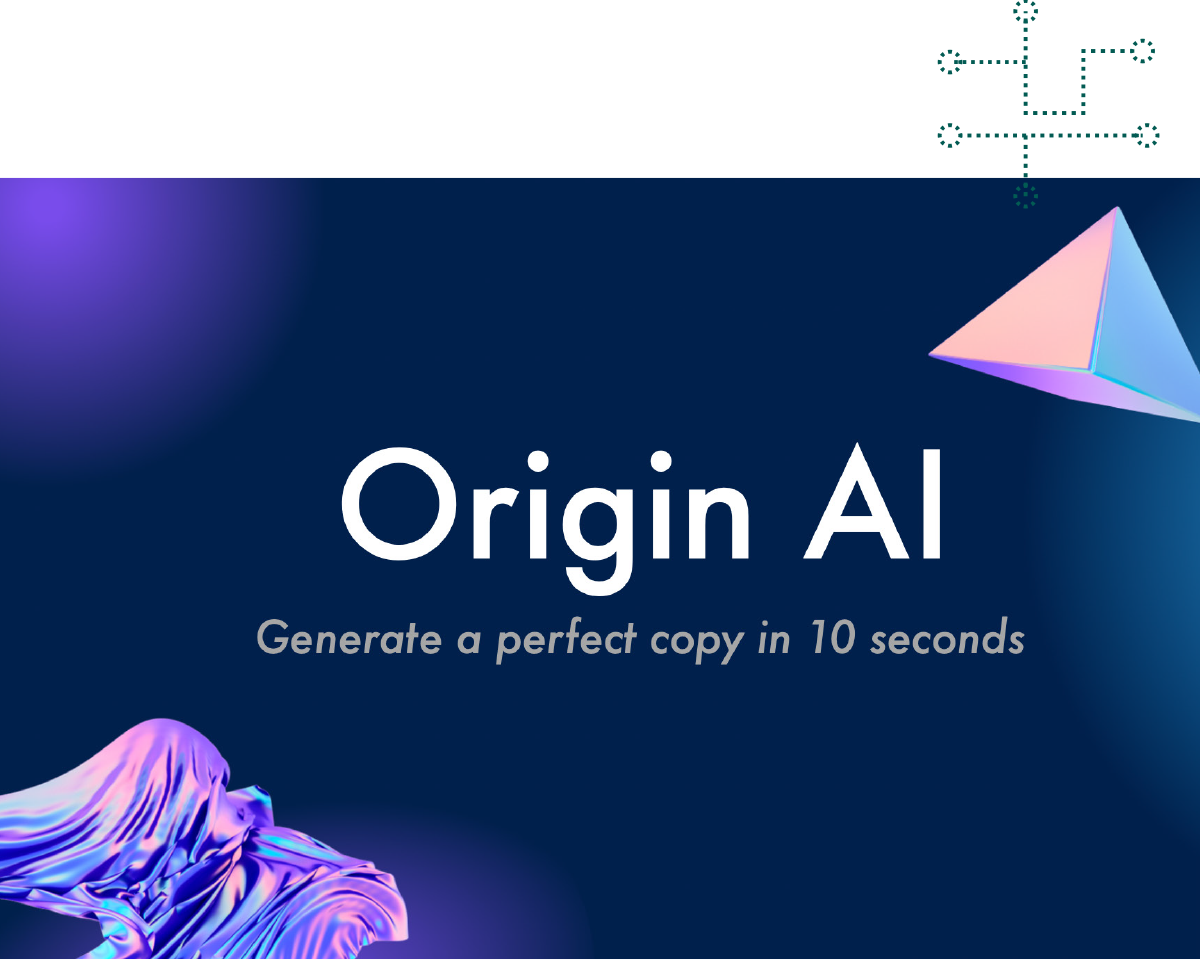
OriginAI serves as a one-click solution for the needs of social media content creators, e-commerce managers and more.
Tiger Bi Hu, a third-year student from the Bachelor of Business Administration in International Business and Global Management programme, founded the company OriginAI with four fellow students in February 2023. It aims to be a one-click solution powered by AI to provide content generation, marketing and other services for social media creators, e-commerce practitioners and businesses. “The Start-up Connector programme has been a valuable channel to help us understand the start-up ecosystem at HKU and the resources available to us, and it’s connected us with other potential start-ups,” said Tiger. They have also had support from the Microsoft for Startups Founders Hub. OriginAI recently launched and has more than 400 registered users.
EMBRACING AI AND NEW TECHNOLOGY
Generative artificial intelligence (GenAI) in education has been firmly embraced at HKU following a period of dialogue and thoughtful reflection on how to get the most out of this technology. Initially, we were cautious about its use to ensure fairness in assessment and access and to sound out staff and students on its ramifications. Two workshops were held in early March, each attended by more than 1,000 staff and students, followed by five policy-making sessions to address specific issues such as plagiarism and security. By June we had a policy, approved by the Senate and disseminated across campus, that encourages the use of GenAI across all programmes and recognises its potential to benefit humankind. Proficiency with AI is also now seen as a fifth literacy at HKU, alongside oral, written, visual and digital communication.
To help both teachers and students make the most of GenAI, a series of support measures were rolled out by the new Teaching and Learning Innovation Centre (TALIC), which brings under one roof three previous centres (Centre for the Enhancement of Teaching and Learning, Technology-Enriched Learning Initiative, and Teaching and Learning Evaluation and Measurement Unit). TALIC has organised WhatsApp support and an AI clinic for teachers, a dedicated website called AI in Education, a five-week self-paced online module on AI literacy for staff and students, and an assessment guide for teachers.
At the curriculum level, new interdisciplinary programmes with a technology focus that includes but is not limited to GenAI, have also been developed, such as the Bachelor of Arts in Humanities and Digital Technology and the Master of Arts in AI, Ethics and Society. Other technologies, such as virtual reality, are also being adopted where they serve curricular needs.
1,000+
PARTICIPANTS IN EACH OF TWO
WORKSHOPS ON THE THEME
‘CHATGPT AND AI TECHNOLOGIES
IN EDUCATION: THE GOOD,
THE BAD, AND THE UNKNOWN’
EXPLORING AI IN LAW
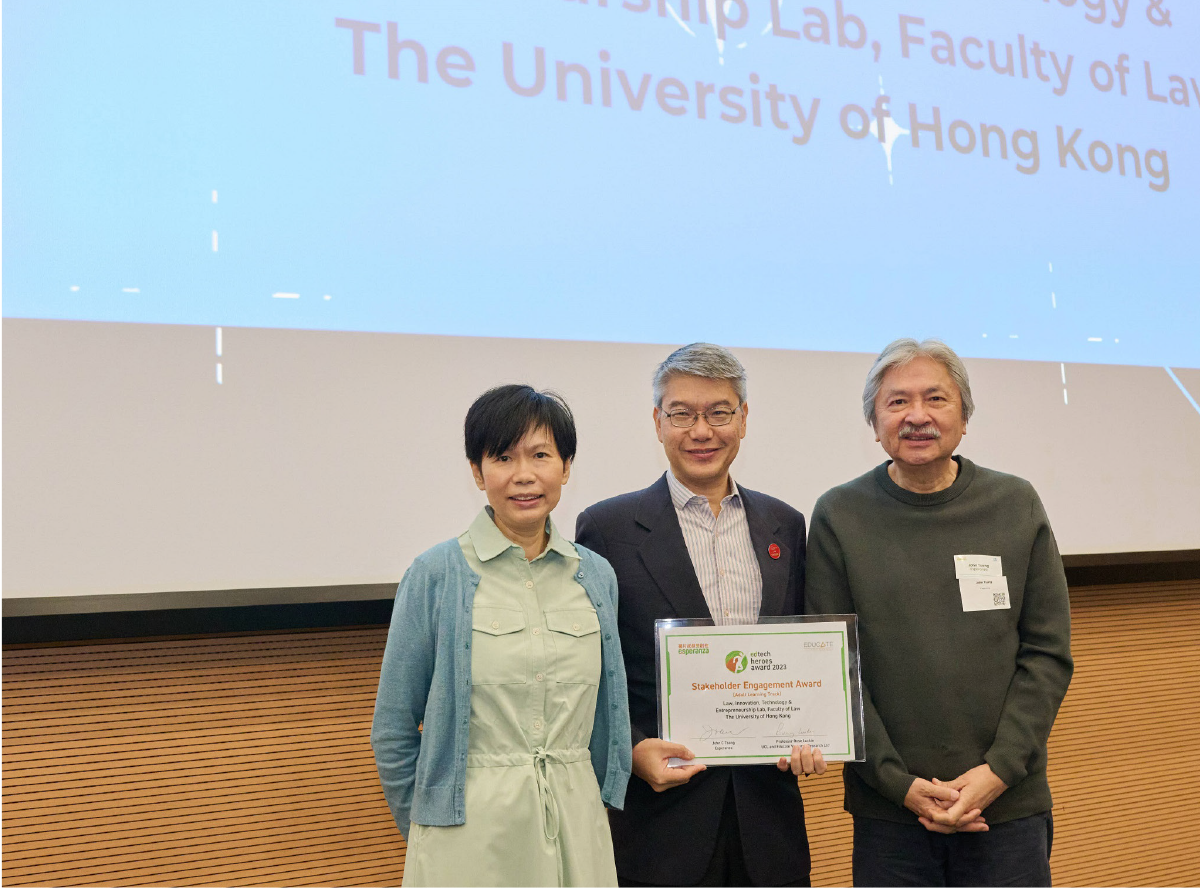
LITE Lab@HKU was awarded the 2023 Edtech Heroes (Adult Learning) Stakeholder Engagement Award.
The Law, Innovation, Technology & Entrepreneurship (LITE) Lab’s Founding Executive Director, Mr Brian Tang Wha Li, introduced one of the world’s first law school courses incorporating GenAI after ChatGPT was unveiled. In ‘LITE Lab: Tech Startup Law’, students, who co-design legal, regulatory and policy research with Hong Kong tech start-ups, companies, social entrepreneurs and NGOs, were encouraged to explore using GenAI in their research and project deliverables. In ‘LITE Lab: Lawtech & Regtech Sandbox’, students were asked to explore GenAI’s strengths and weaknesses in a chosen area of lawyering. After ensuring all students had access to some form of GenAI, they were required to check everything for accuracy before sharing and to not input confidential or proprietary information into prompts. “One main learning outcome was for students to develop first-hand skillsets in the emerging field of legal prompt engineering,” said Mr Tang. Some of the student findings demonstrated how GenAI can help streamline and augment the work of legal practitioners.
USING IMMERSIVE DIGITAL STORYTELLING TO TEACH ABOUT GRIEF IN CANCER CARE
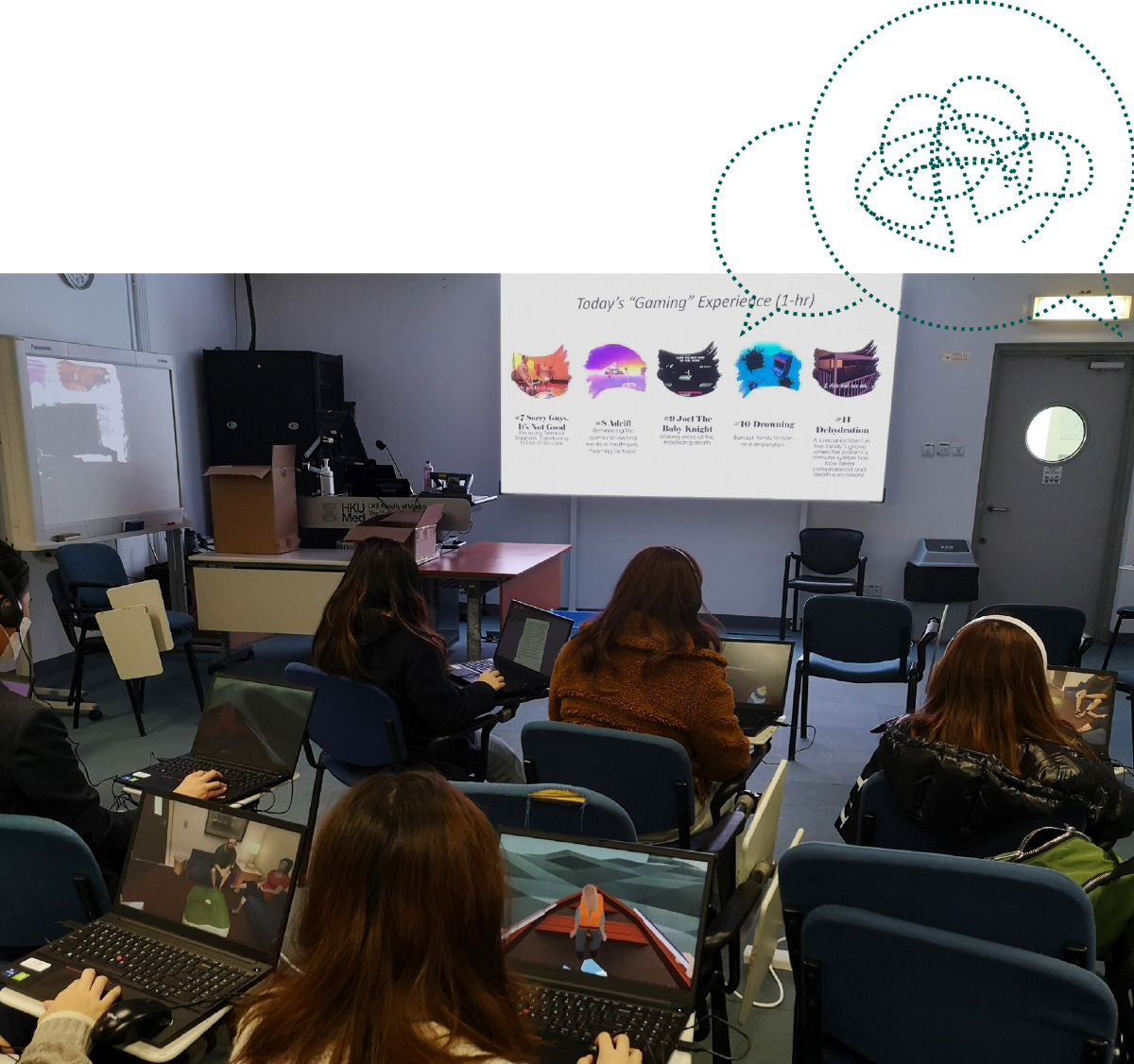
MBBS students immersed in a virtual medical consultation room at which distressed parents of a paediatric cancer patient received the news that chemotherapy has failed, and the family’s narrative that they felt “being abandoned on a drifting boat with the dying child”.
Mr Samson Wong Ki Sum, Assistant Lecturer in the Medical Ethics and Humanities Unit, has initiated a grief literacy training module in the Medical Humanities Curriculum that uses virtual reality to expose students to the agonising pain and guilt of family members in end-of-life care as they witness their dying child’s life wither, while holding on to the slightest hope that medicine can make a difference. By exposing learners to the complexities of anticipatory grief from the lens of family caregivers, this immersive high-fidelity case study encourages medical students to reflect on the meaning of physician empathy, and to rehearse the myriad emotions that may emerge in end- of-life care settings. Second-year MBBS student Julian Wan Pui Hang reflected: “As a medical student and future physician, there will be times that I will encounter terminally ill patients and their distressed caregivers. This medical humanities workshop has profoundly instilled in me the significance of cultivating patience, understanding and empathy when families confront adversity.”
INNOVATION PATHWAYS
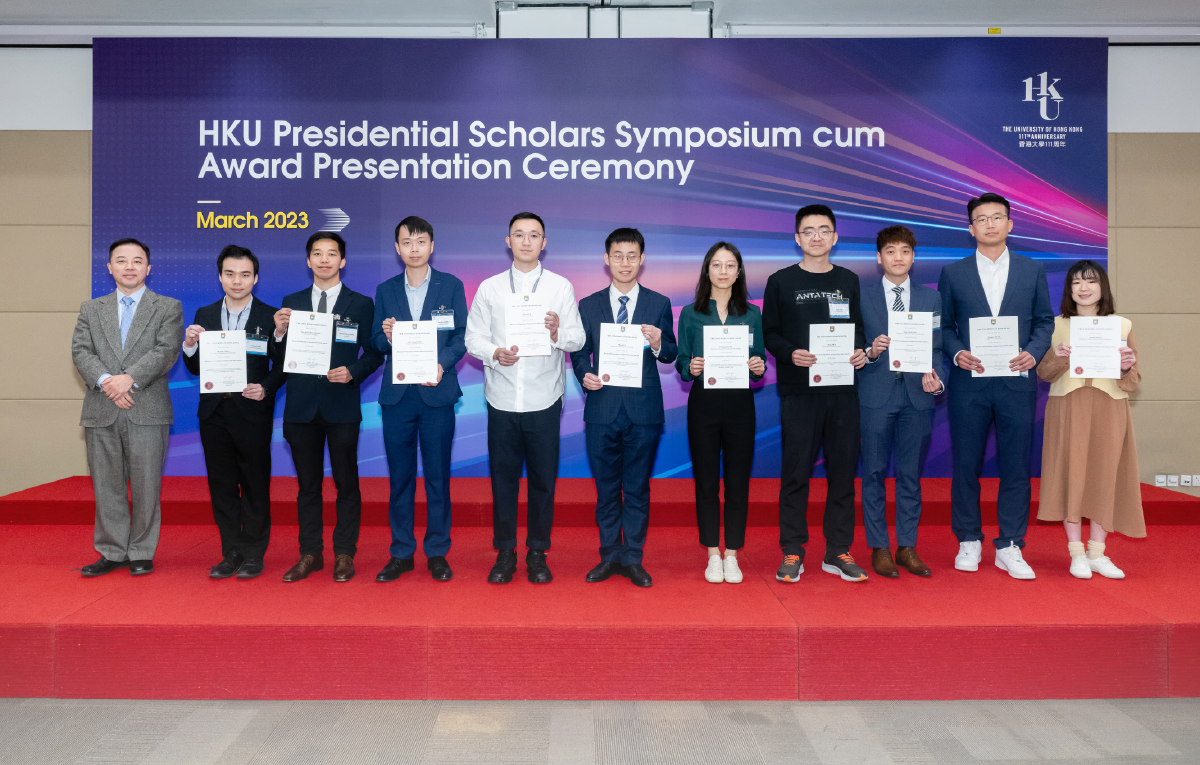
Recipients of the Research Postgraduate Student Innovation Award 2022–23.
HKU is supporting the drive for innovation across Hong Kong and the Greater Bay Area not only through our research, but our education of future researchers and entrepreneurs. At the undergraduate level, 29 courses across six faculties offered training in entrepreneurial skills in 2022–23. This complements the efforts by iDendron and the Start-up Connector programmes to support student entrepreneurial ventures (see The TEC: Innovation Hub).
Innovation is also emphasised in both research and taught postgraduate programmes. The Research Postgraduate Student Innovation Award launched in 2022 incentivises students to think outside the box, challenge existing paradigms and break new ground. Up to 10 awards of HK$50,000 each are handed out each year. The HKU Foundation Publication Award, established in 2022–23, encourages research postgraduate students to get their research published in leading journals. Twenty awardees are honoured each year and receive a HK$5,000 award.
Meanwhile, the new Greater Bay Area MBA, launched in 2022, taps into the eager demand in the region for business professionals who can help take innovation to market and manage new companies. The part-time programme is targeted at experienced management professionals and admitted 163 students in its first intake in 2022–23 and 244 in the 2023–24 intake. Classes are held at both the HKU Business School’s Hong Kong campus and at its Shenzhen campus, which officially opened in 2022. The HKU MBA offered in Hong Kong was ranked No.1 in Hong Kong and 19th in the world by the composite Poets&Quants International MBA Ranking 2022–23 (based on rankings by The Financial Times, The Economist, Bloomberg Businessweek, and Forbes).
29
COURSES ACROSS SIX FACULTIES
OFFERED TRAINING IN ENTREPRENEURIAL SKILLS
IN 2022–23
BIOTECH START-UP TRAINING
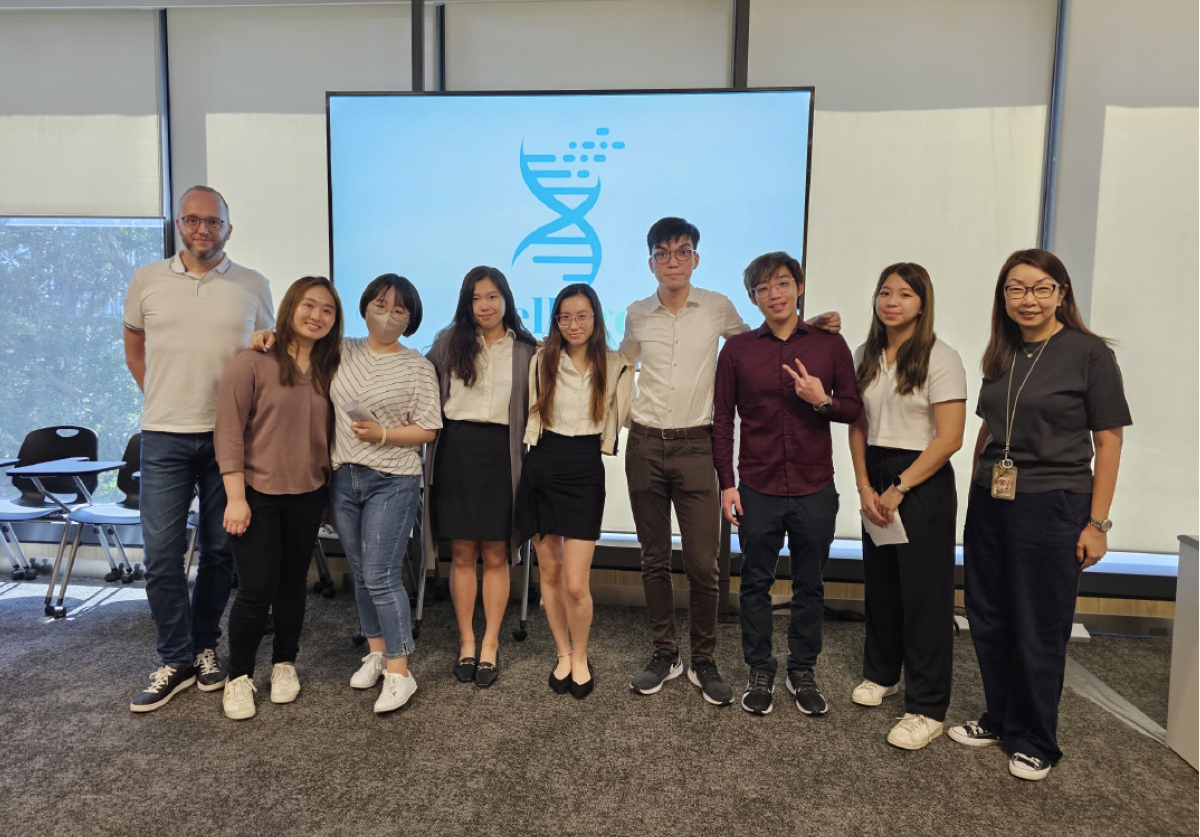
Class photo of the capstone project taken with teachers Dr Masayo Kotaka (first from right) and Mr Jeffrey Broer (first from left).
BBiomedSc launched a capstone project for final-year students that takes them through the process of setting up a biotechnology start-up, including the problems and scenarios they may encounter, the business and marketing knowledge they may need, and how to apply their biomedical know-how. In 2023, Charmaine Tse worked on a project in her final year to develop a sensor for children with special educational needs that can help parents better understand their children’s emotions and improve classroom management to prevent outbursts at school. “This course allowed me the opportunity to step out of my comfort zone and pitch and present each lesson. I now have skills and an entrepreneurship mindset, which has inspired me to work on developing a pickup app for surplus food with my friends.”
INNOVATION AWARD WINNERS
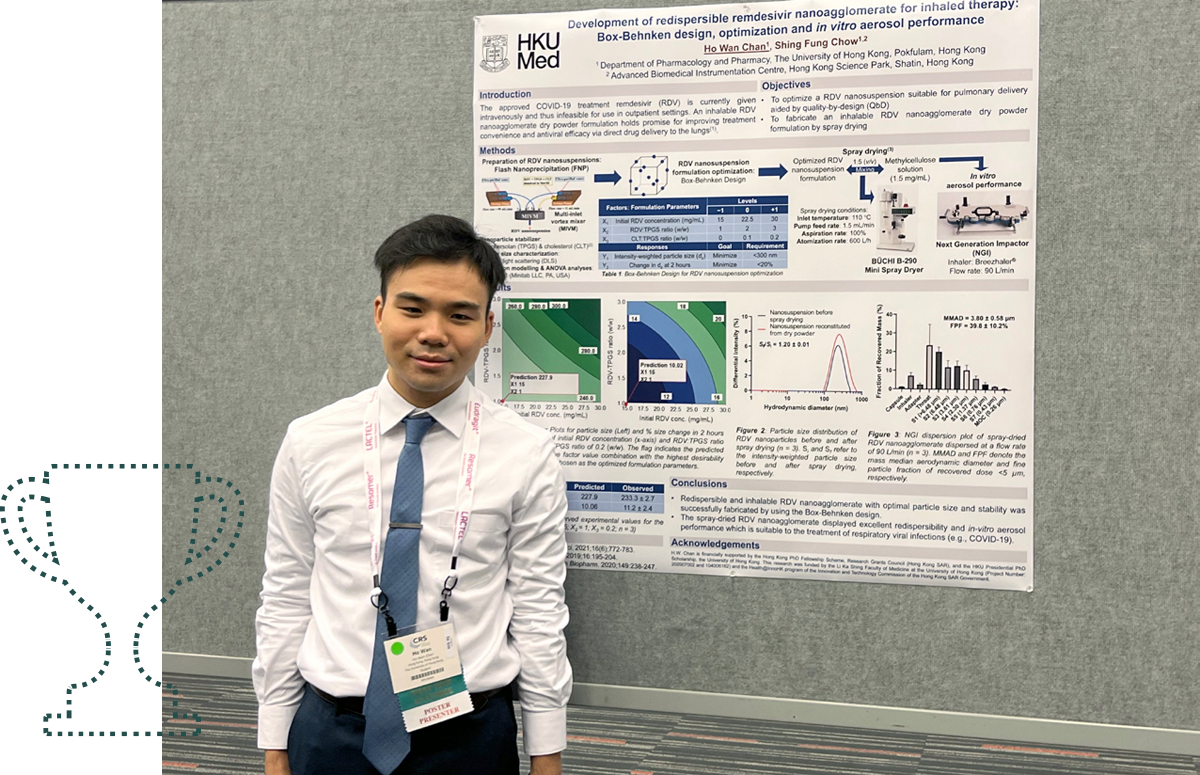
Howard at the Controlled Release Society 2022 Annual Meeting and Expo.
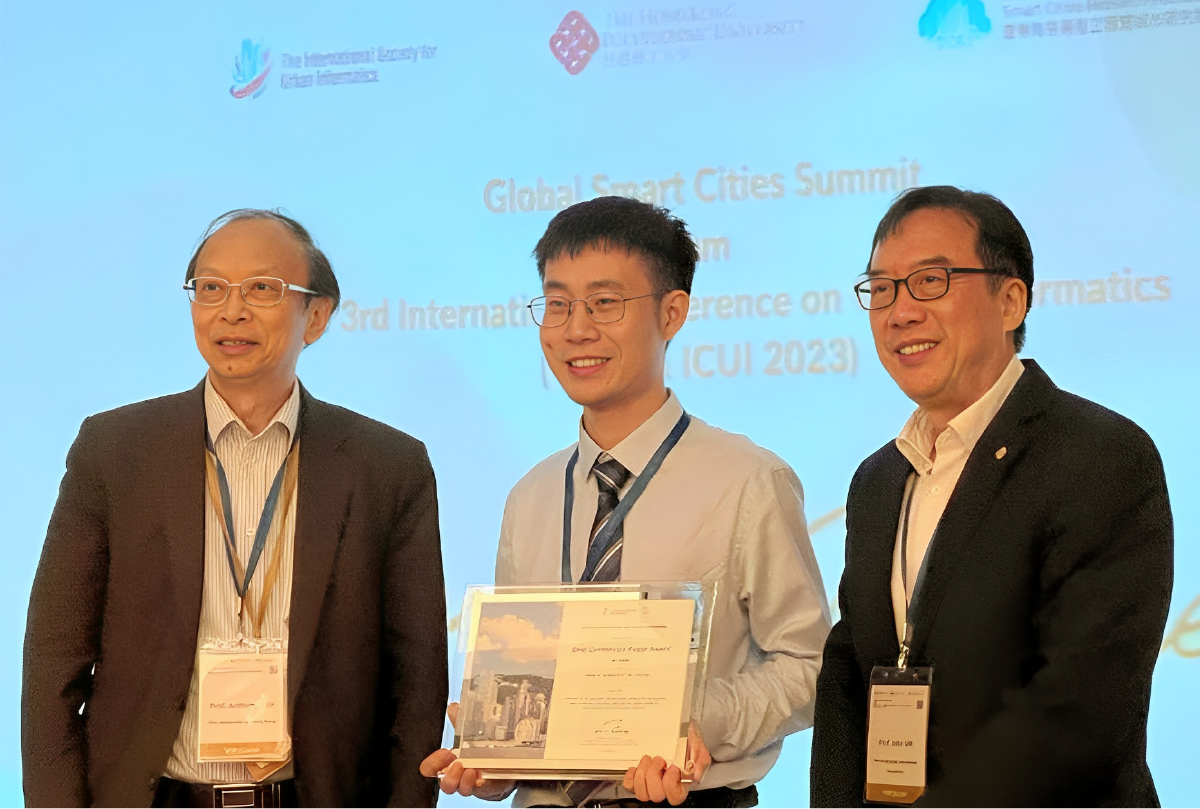
Maosu (centre) receiving the Best Paper Award at the Global Smart Cities Summit cum The 3rd International Conference on Urban Informatics.
Research postgraduate students are being encouraged to develop applications based on their investigations through the new Research Postgraduate Student Innovation Awards. Two standout recipients were PhD candidate in Pharmacology and Pharmacy, Howard Chan Ho Wan, and PhD candidate in Urban Planning and Design, Li Maosu. Howard has developed a continuous manufacturing platform to fabricate inhalable nano-agglomerate powder formulations that offer efficient and optimal delivery of drug-loaded nanoparticles to the lungs, to tackle respiratory diseases such as lung cancer and COVID-19. And Maosu has developed the world’s first automatic machine learning-based city information modelling approach to estimate human-perceived openness of urban-scale window views, that can aid in building design and urban planning and overcome the oversimplification and limited scale of current assessments.
FUTURE READINESS
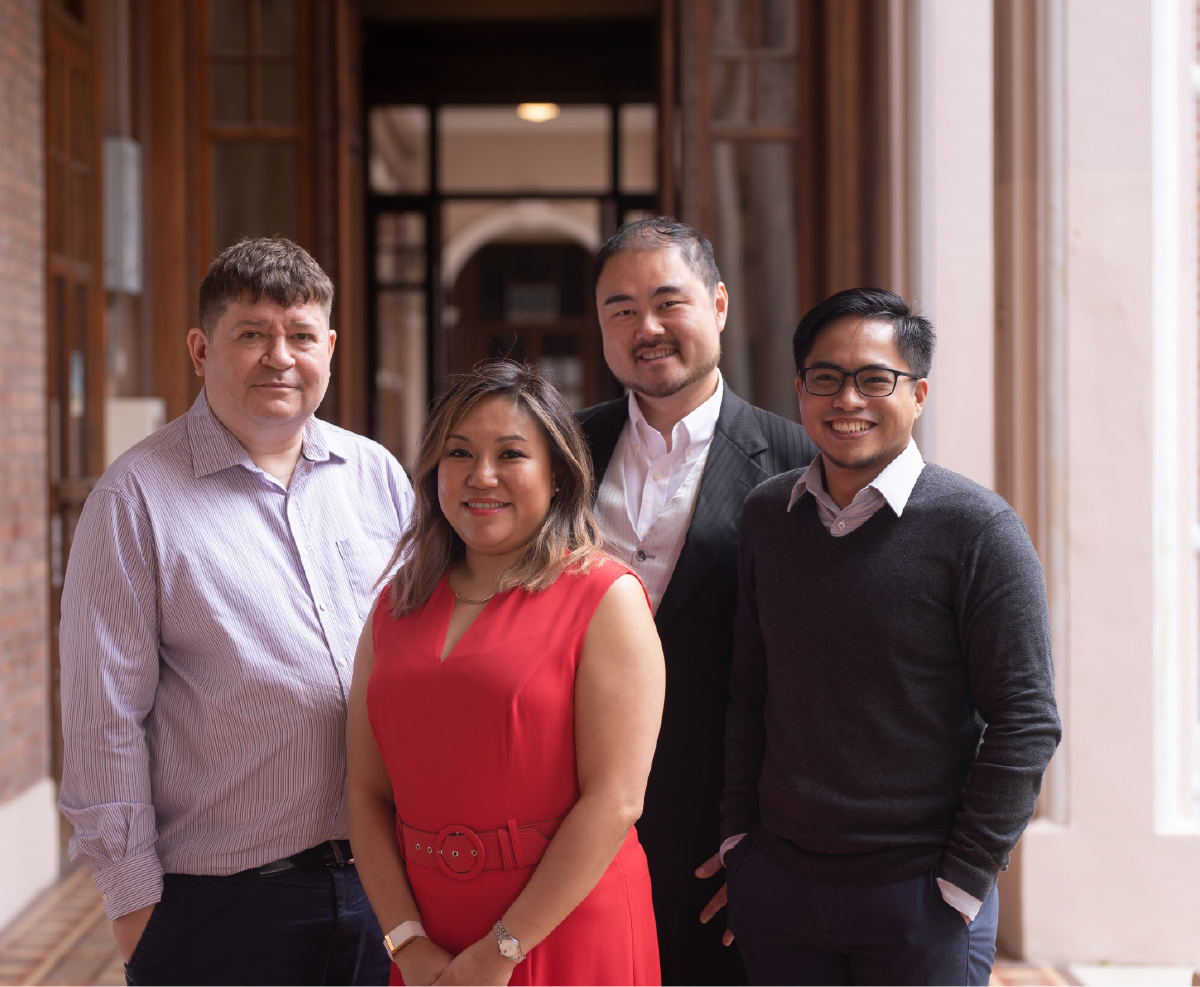
Dr Michelle Reyes Raquel (second from left),Mr Simon David Boynton (first from left), Dr Jack Tsao (second from right) and Mr Donn Emmanuel Ventura Gonda (first from right) were honoured with the University’s Outstanding Teaching Award for the ‘Communication-intensive Courses’.
Technology is not the only area where students are being prepared for the future. The Future Readiness Initiative (FRI), launched in September 2023, gives first-year students a leg-up in essential soft skills and gets them thinking about planning their learning journey. It consists of two credit-bearing online courses on communication skills and research skills, involving 20 hours of screen and offline activities that students complete at their own pace. Both skills will be important for studies and future careers: employers’ value communication skills, while the vast quantity of data in the world means students must learn how to sift through it all and draw meaningful conclusions. It is also hoped they will become enthused about doing research.
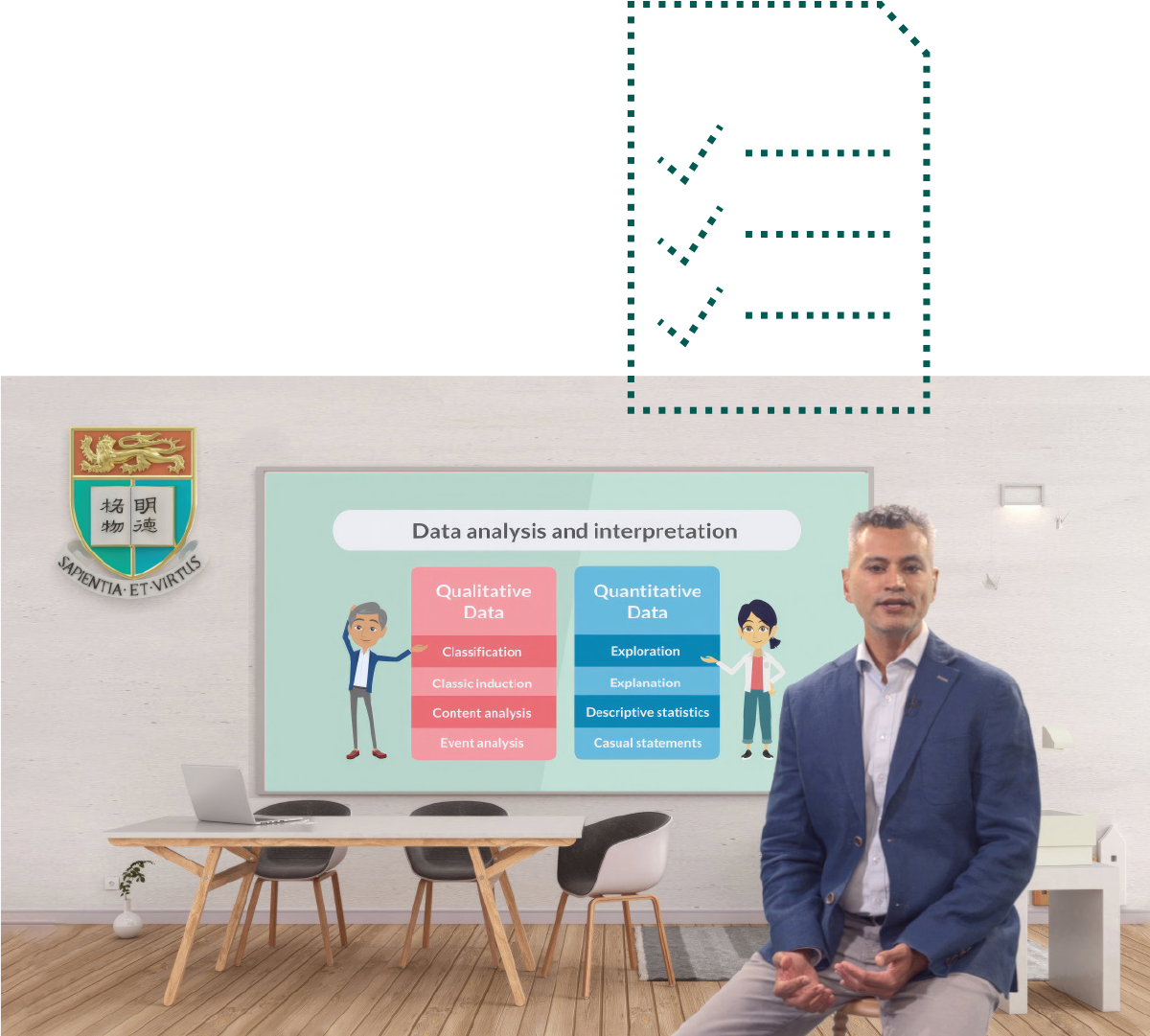
The ‘Introduction to Research Methods’ online course bridges the gap between abstract research concepts and practical application by offering hands-on exercises using real-world data, building students’ confidence in research skills.
Communication skills are also promoted through the award of a badge upon completion of the ‘Communication-intensive Course’ (CiC) developed by a team of teachers from the Centre for Applied English Studies, Common Core Office and TALIC. The team help teachers of all disciplines incorporate communications into their course design and instruction, and the badge recognises success in doing so. 132 faculty-level courses, 38 Common Core courses and 71 courses in English and Chinese language enhancement have received the badge. The CiC Team received an Outstanding Teaching Award (Team) in the HKU Excellence Awards for 2022.
At the faculty level, individual teachers also encourage their students to look beyond their immediate circumstances to the wider world. One such teacher, Mr David Bishop in the Business School, was honoured with the 2023 UGC Teaching Award.
The Common Core itself also helps students develop essential skills for the future, in particular the ability to dive into multidisciplinary topics, think creatively about their future careers, and be prepared for interdisciplinary research. All undergraduate students must take Common Core courses alongside classmates from other disciplines. In 2023–24, 176 courses were offered covering a broad span, such as Artificial Intelligence, Leading a Life Worth Living, the Evolution of Civilisation, and Digitising Cultural Heritage in Greater China.
176
COMMON CORE COURSES
IN 2023–24
IDENTIFYING SIGNALS OF CHANGE
Year 2 student Charis benefitted from participating in a research project in collaboration with an international sustainable business consultancy firm.
The Future of Sustainable Business in Asia was launched in early 2023 as an undergraduate research project under the Common Core. Students did ‘horizon scanning’ for the Futures Team at the global consultancy Business for Social Responsibility (BSR), to identify new trends and phenomena that have the potential to impact stakeholder engagement, supply chain management, and internal operations. Year 2 HKU-PKU LLB student, Charis Chan Wing Tung, applied natural language processing technology to recognise greenwashing claims in company reports, a practice primarily used in banks for investment and insurance purposes. She benefitted from working in an international team of students and learning the importance of presentation skills. “It is easy to be fixated on one's professional knowledge or research and forget that it is equally important how we present findings to the client. Through BSR's feedback, we fine-tuned our work to discuss impact more comprehensively and advise the client, thus creating value."
UGC TEACHING AWARD WINNER
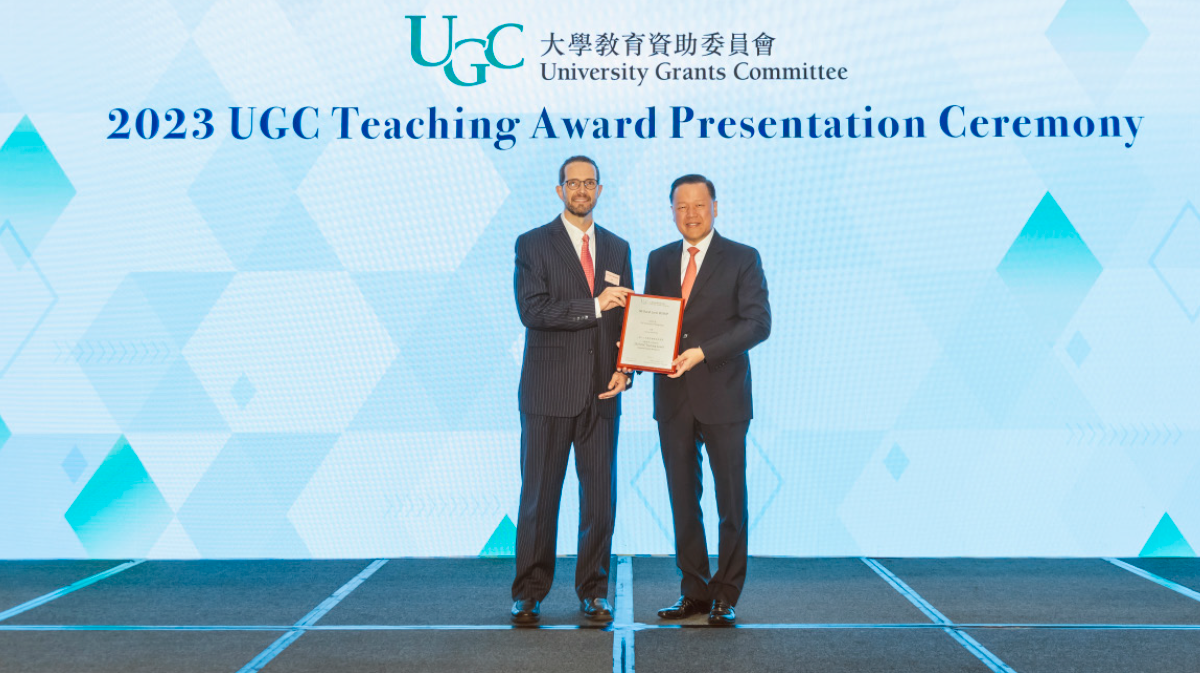
Mr David Bishop (left) from the HKU Business School receiving the 2023 UGC Teaching Award.
Mr David Bishop of the Faculty of Business and Economics won the Hong Kong-wide UGC Teaching Award in September 2023, just a few months after receiving the HKU University Distinguished Teaching Award. His innovative teaching approach has students develop social impact projects that have enduring impact and provide solutions to a range of problems, especially those plaguing the developing world. About 1,200 students from 170 countries, many of them on exchange, have joined his Impact Lab which he founded about a decade ago. They have helped dozens of NGOs and helped create social enterprises such as Soap Cycling, Migrasia Global Solutions Ltd and EmpowerU. “I am really excited about the UGC Teaching Award. My only regret is that it was an individual award. We’ve got great people, a whole community, providing assistance and directly supervising our students,” he said.
